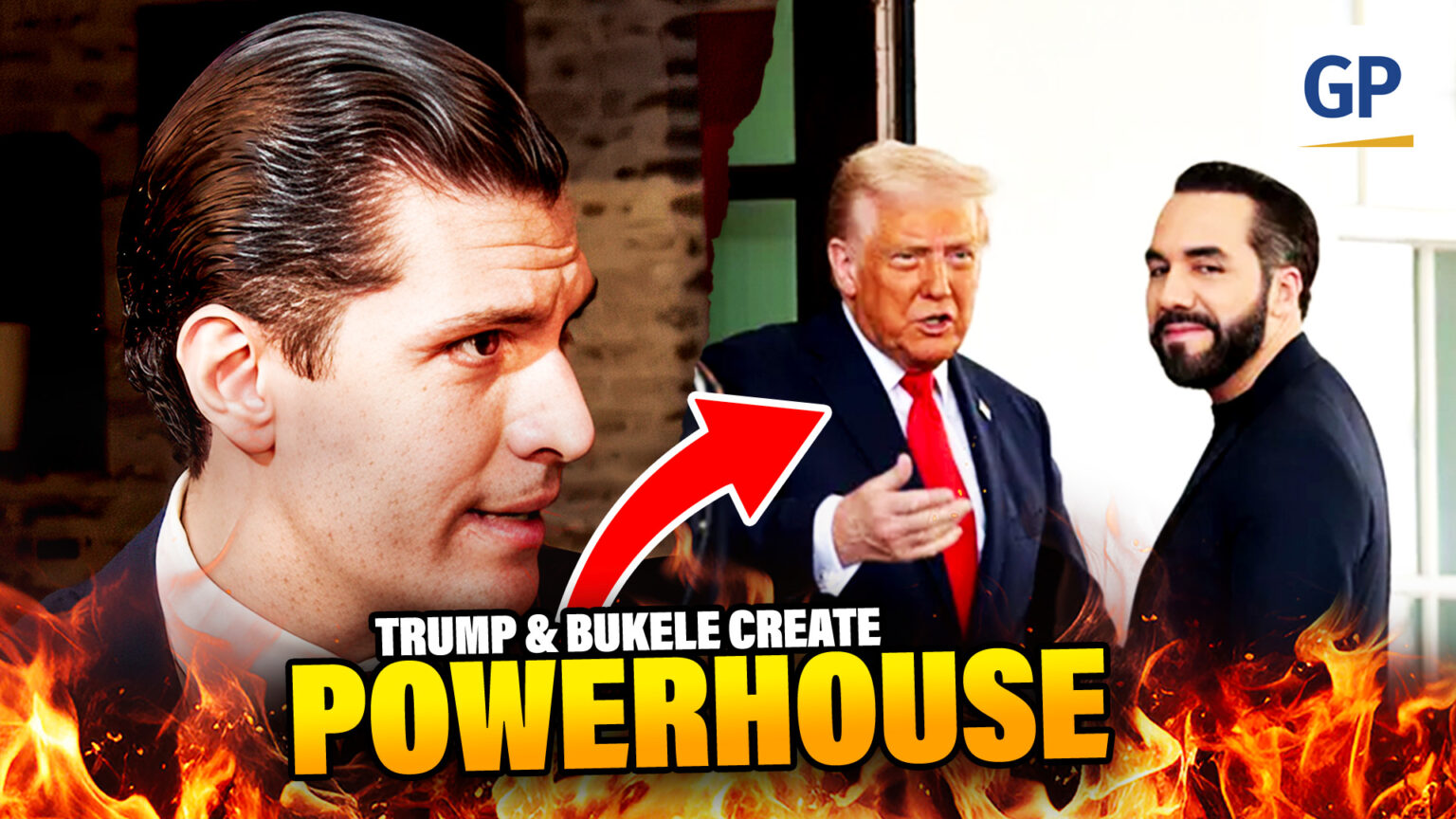This article originally appeared on rifttv.com and was republished with permission.
Once plagued by gang violence and dubbed the murder capital of the world, El Salvador has undergone a stunning transformation under President Nayib Bukele, earning praise from U.S. President Donald Trump for its bold security measures and leadership.
Bukele’s iron-fisted policies have slashed crime rates, turning a nation once synonymous with chaos into a model of stability that challenges the globalist narratives of Western media.
Rift TV traveled to the heart of Central America to uncover the truth behind this rebirth, speaking exclusively with Herbert Esmahan, a seasoned voice in Salvadoran politics, who revealed the forces opposing Bukele and the quiet powerbrokers fueling his rise..

Right out of the gate, Esmahan confirmed what many Americans suspect: global elites use their media stranglehold to vilify leaders who prioritize national sovereignty.
“They’re owned by as few as 10 corporations globally,” Esmahan said of major media outlets. “They can send out a memo and initiate a disinformation campaign in an instant. It’s called character assassination. It’s what they try to do to anyone that opposes the globalist system.”
Bukele, by putting his people first, has become a prime target—yet El Salvador’s progress, visible to any visitor, defies their narrative.
“Come and see for yourselves,” Esmahan urged, “how this nation went from a dark murder capital to the safest in the Western Hemisphere.”
“How did El Salvador go from being a country that was known for murders to becoming a global example?” he asked. “It’s as simple as a David versus Goliath situation. We are a very small country that is very brave, that is very firm, and we have proven to the world that when you behave like this, you can be small in size, but if you’re big in heart, you can make very important changes that have saved thousands of lives.”
WATCH:
El Salvador’s journey from gang-ridden despair to hope is remarkable.
Once crippled by gangs like MS-13 and Barrio 18, the country saw homicide rates hit 110 per 100,000 in the 2010s, fueling mass migration to the U.S.
Bukele’s 2022 crackdown, incarcerating over 85,000 suspected gang members, cut homicides to 2.4 per 100,000 by 2023, safer than Canada and many Western nations.
(Photo by Marvin RECINOS / AFP)
Infrastructure surged, with new schools, hotels, and tourist hubs boosting the economy, while coastal property values soared tenfold.
Esmahan, a lifelong Salvadoran, witnessed this rebirth: “We’re seeing a nation healed, its future restored from corrupt politicians who never cared about its people.”
Bukele’s ascent is a masterclass in populist disruption.
A former publicist turned mayor of San Salvador in 2015, he founded the Nuevas Ideas party after being expelled from the leftist FMLN, winning the presidency in 2019 with 53 percent of the vote.
His Territorial Control Plan halved homicides in his first year, and the 2022 state of emergency, triggered by a gang killing spree, solidified his “mano dura” approach.
Despite human rights concerns over mass detentions, Bukele’s approval ratings exceed 80 percent, bolstered by his 2024 re-election with 84 percent.
https://t.co/wIUNt0X4G5
— Nayib Bukele (@nayibbukele) August 7, 2025
Esmahan praised Bukele’s rejection of political labels: “He doesn’t call himself right or left wing—just a traditionalist, aligned with public sentiment.”
Facing opposition from Western NGOs, Esmahan pointed to a “parasitic system” promoting a “false democracy” for special interests.
“The left and right serve the same purpose when sold out,” he said. “Bukele hasn’t sold out.”
His policies have dramatically curbed migration by fostering “first-world opportunities” at home, drastically reducing Salvadoran emigration to the U.S.
“Why leave your homeland when crime is a thing of the past?” Esmahan asked.
President Donald Trump greets El Salvador’s President Nayib Bukele as he arrives at the West Wing of the White House, Monday, April 14, 2025, in Washington. (AP Photo/Alex Brandon)
President Donald Trump has repeatedly lauded Bukele’s leadership, recently endorsing El Salvador’s controversial decision to abolish presidential term limits in August 2025.
At a July 2025 White House meeting, Trump called Bukele a tremendous president” and praised their nations’ cooperation in deporting alleged gang members to El Salvador’s high-security prisons, stating, “President Bukele has graciously accepted some of the most violent alien enemies into his nation’s custody.”
The U.S. State Department, echoing Trump’s support, defended the constitutional change as a “democratically elected” process, rejecting comparisons to dictatorial regimes.
This stance, coupled with Secretary of State Marco Rubio’s collaboration with Bukele on deportations and prisoner swaps, underscores El Salvador’s role as a key ally in Trump’s immigration agenda, despite global concerns over democratic erosion.
El Salvador’s revival under Bukele stands as a rebuke to its chaotic past and a warning to Americans facing our own national challenges.
WATCH:
Read the full article here


